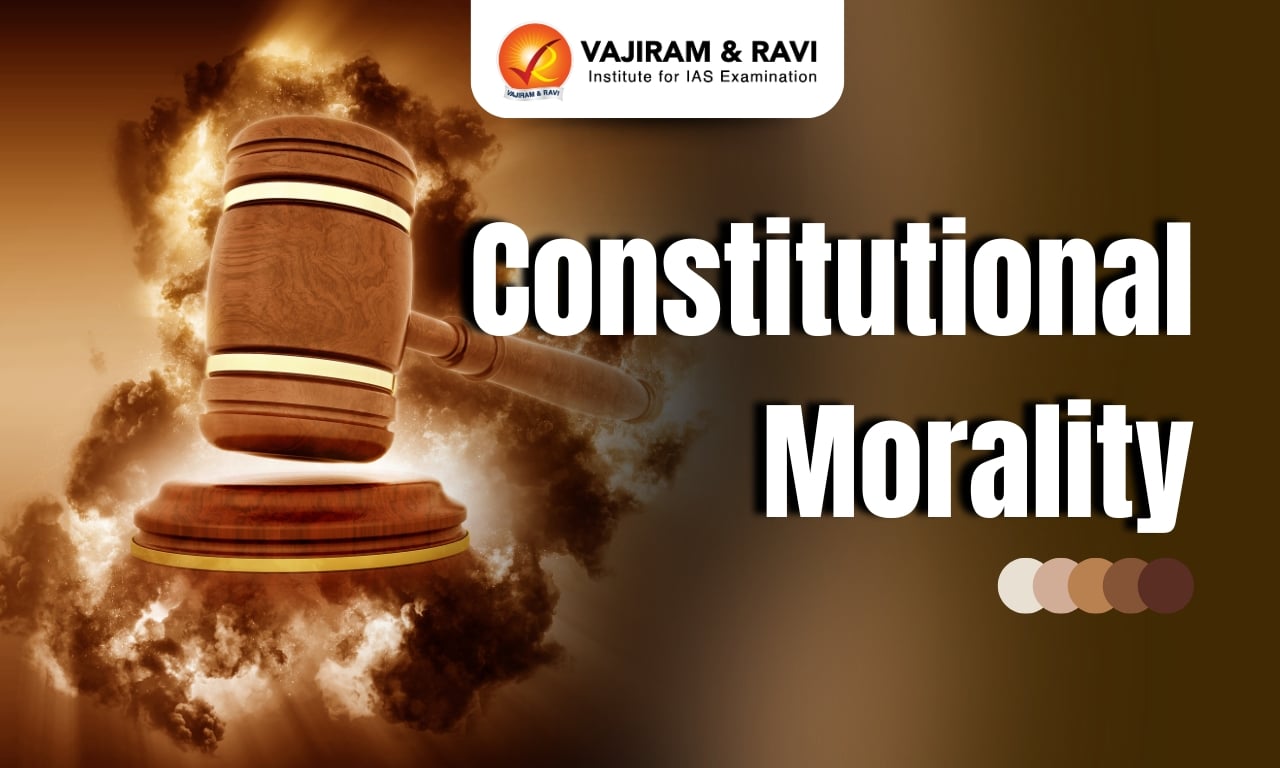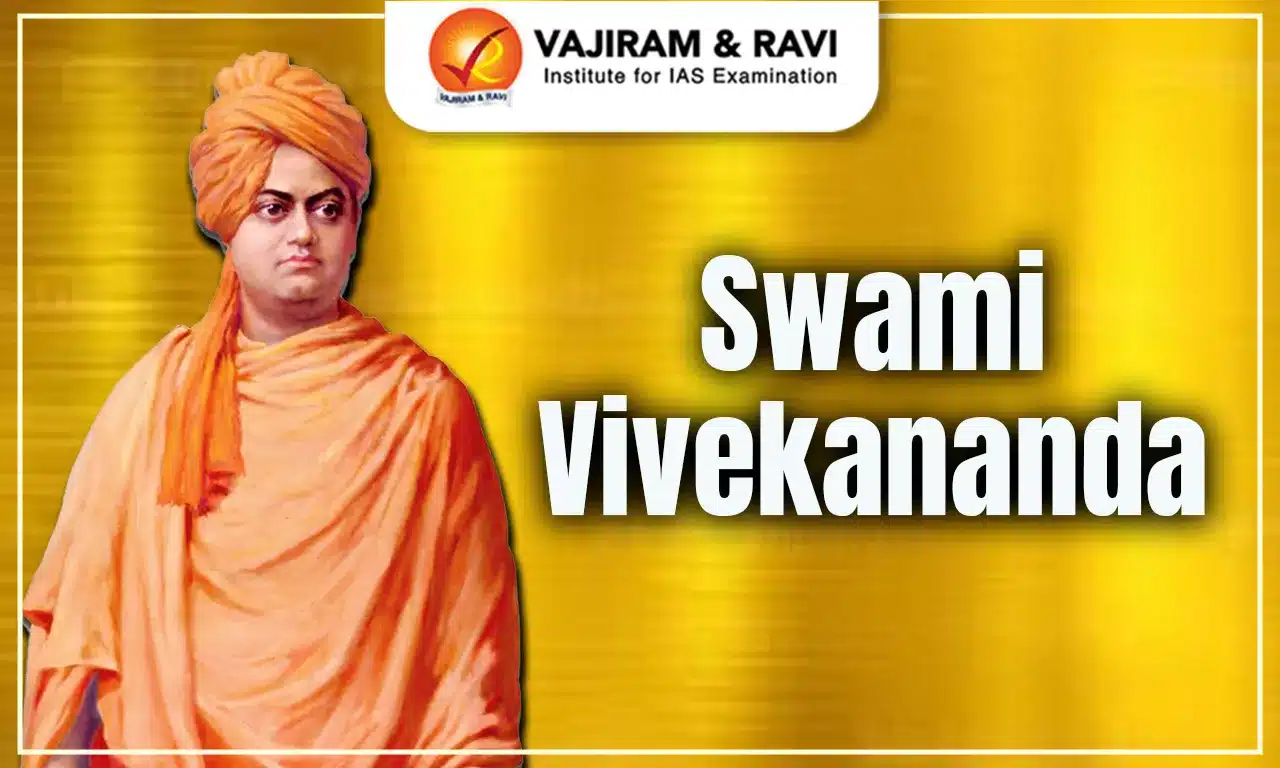What is Constitutional Morality?
Constitutional morality refers to the principles and values that underlie the constitution and guide the actions of government and citizens.
- It encompasses the idea that the constitution is not just a legal document but also a moral one that reflects the shared values and aspirations of a society.
- It also encompasses the idea that the constitution should be interpreted and implemented consistently with these fundamental principles and values rather than simply as a technical document to be followed literally.
- The term Constitutional Morality is not mentioned anywhere in the constitution.
What are some of the elements of Constitutional Morality?
Some of the elements of Constitutional Morality are:
- Rule of Law
- Right to Equality
- Social Justice
- Due Process of Law
- Individual Liberty
- Freedom of Expression
How has the concept of Constitutional Morality evolved?
- Origin: The doctrine of Constitutional morality traces its origin back to the work of English Historian George Grote.
- He used ‘constitutional morality’ to describe popular sovereignty, governed based on ‘freedom’ and self-restraint.
- Constitutional morality, for Grote, also meant citizens’ right to criticize public officials. Therefore, highlighting the limitation to the power of public officials and their duty to respect the Constitution.
- Constituent Assembly: In the Indian context, this word was first used by Dr. Bhim Rao Ambedkar during the Constituent Assembly debate to justify the inclusion of administrative details in the Constitution itself.
- According to him, constitutional morality was the solution to the existing inequality in society. It primarily meant respect among parties in a republic for constitutional democracy as the preferred form of governance and administration.
- Post Independence: Post Independence, Constitutional Morality has been mentioned by the Supreme Court in some of the judgments like
- Kesavananda Bharati Case(1973): It was subtly indicated by the Supreme Court when it propounded the conception of the basic structure of the Constitution.
- Other cases: Constitutional Morality was also mentioned in the First Judges case(1982). Thereafter, it was mentioned in Naz Foundation v. Government of NCTof Delhi(2010), where it was used antithetically to popular acceptance and social morality.
What are some significant Supreme Court judgments relating to Constitutional Morality?
Constitutional morality has been invoked in several cases by the Supreme Court. Some of these cases are
- SP Gupta Case/First Judge Case (1982): The Supreme Court described constitutional violation as ‘a serious breach of constitutional morality’.
- Naz Foundation vs. Government of NCT of Delhi (2010): The Supreme Court took into cognizance the idea of upholding the constitutional principles rather than society’s perception with regard to the legitimacy of same-sex relationships.
- Manoj Narula vs. Union of India (2014): Chief Justice of India(CJI) described constitutional morality as a means to bow down to the norms of the Constitution and not to act in a manner that would become violative of the rule of law or reflectible of action in an arbitrary manner.
- NCT of Delhi vs. Union of India (2018): The Supreme Court equated constitutional morality with the spirit of the Constitution itself.
- It held that Constitutional morality, in its strictest sense, implies a strict and complete adherence to the constitutional principles as enshrined in the various segments of the document.
- Navtej Singh Johar vs. Union of India (2018): The Supreme Court made a distinction between constitutional and public morality.
- It held that constitutional morality reflects the ideal of justice as an overriding factor in the struggle for existence over any notion of social acceptance.
- The court thus struck down section 377 of IPC, which made homosexuality a criminal offense.
- Joseph Shine vs. Union of India (2019): Upholding the right of gender equality and right to equality, the Supreme court struck down Section 497 of IPC, which made adultery a crime.
- The Supreme Court noted that constitutional morality must guide the law and not the common morality of the State at any time in history.
- Indian Young Lawyers Association & Ors vs. The State of Kerala & Ors., (2019) (Sabarimala Case): The Supreme Court ruled that the exclusion of women between the ages of 10-50 years from the Sabarimala temple violates four key principles of constitutional morality: Justice, Liberty, Equality, and Fraternity.
- The court observed that the term "morality" in Articles 25 & 26 of the Constitution refers to constitutional morality rather than popular morality.
What is the significance of Constitutional Morality?
Constitutional morality is significant for the functioning of a democratic society due to the following reasons:
- Protects rights of citizens: It helps to protect the rights and freedoms of citizens by ensuring that the government is held accountable to the rule of law and the principles of democracy, justice, liberty, and equality.
- Promoting Democratic ideals: It helps to maintain the integrity of democratic institutions by ensuring that the government is constrained by the will of the people and the principles of the constitution.
- Bring positive change in society: It can be used to interpret laws or statutes no longer consistent with recent times, thus bringing positive societal change.
- Creates Inclusive Society: It helps to promote social cohesion and respect for diversity by recognizing and protecting the rights of all citizens, regardless of their background or identity.
What are some of the issues pertaining to Constitutional Morality in India?
Some of the issues pertaining to Constitutional Morality in India are
- Lack of clarity: Some argue that the concept of constitutional morality is not clearly defined and that it can be used to justify a wide range of actions and decisions, which undermines the principle of predictability and the rule of law.
- Can lead tojudicial overreach: If this doctrine is used without limits or restrictions, it could amount to judicial overreach. This can lead to a violation of the separation of powers.
- Subjectivity: Some argue that the concept of constitutional morality is highly subjective and that it can be used to justify different actions and decisions depending on the perspective of the person or institution interpreting it.
- Lack of popular legitimacy: Some argue that constitutional morality is not based on popular consent and is imposed on society in opposition to public morality.
- Selective application: There have been instances where constitutional morality has been selectively applied to certain groups or issues, undermining the principle of impartiality and the rule of law.
What steps can guide towards the effective realization of Constitutional morality?
Some of the steps that can be taken are:
- Providing holistic definition: Defining the meaning of ‘constitutional morality' could make this a standard, especially in cases where the rights and liberties of individuals are pitted against religious or cultural practices.
- Increasing Objectivity: By setting certain objective standards, the principle of constitutional morality could develop into a more holistic doctrine, such as the ‘Basic Structure Doctrine’.
- Balanced Application: Constitutional morality should be applied in a manner that is consistent with the principles and values of the constitution and that takes into account the specific context and circumstances of a particular situation.
- Active citizenry: Citizens should be encouraged to actively participate in the political process and hold their elected officials accountable.
- Strong oversight institutions: Strong and independent institutions, such as the judiciary and the press, play a vital role in upholding constitutional morality.
Last updated on January, 2026
→ Check out the latest UPSC Syllabus 2026 here.
→ Join Vajiram & Ravi’s Interview Guidance Programme for expert help to crack your final UPSC stage.
→ UPSC Mains Result 2025 is now out.
→ UPSC Notification 2026 Postponed for CSE & IFS which was scheduled to be released on 14 January 2026.
→ UPSC Calendar 2026 has been released.
→ UPSC Prelims 2026 will be conducted on 24th May, 2026 & UPSC Mains 2026 will be conducted on 21st August 2026.
→ The UPSC Selection Process is of 3 stages-Prelims, Mains and Interview.
→ Prepare effectively with Vajiram & Ravi’s UPSC Prelims Test Series 2026 featuring full-length mock tests, detailed solutions, and performance analysis.
→ Enroll in Vajiram & Ravi’s UPSC Mains Test Series 2026 for structured answer writing practice, expert evaluation, and exam-oriented feedback.
→ Join Vajiram & Ravi’s Best UPSC Mentorship Program for personalized guidance, strategy planning, and one-to-one support from experienced mentors.
→ UPSC Result 2024 is released with latest UPSC Marksheet 2024. Check Now!
→ UPSC Toppers List 2024 is released now. Shakti Dubey is UPSC AIR 1 2024 Topper.
→ Also check Best UPSC Coaching in India
Constitutional Morality FAQs
Q1. Is Constitutional Morality defined by the constitution? +
Q2. How does Constitutionalism differ from Constitutional Morality?+
Q3. How does social morality differ from constitutional morality?+
Tags: constitutional morality quest

















